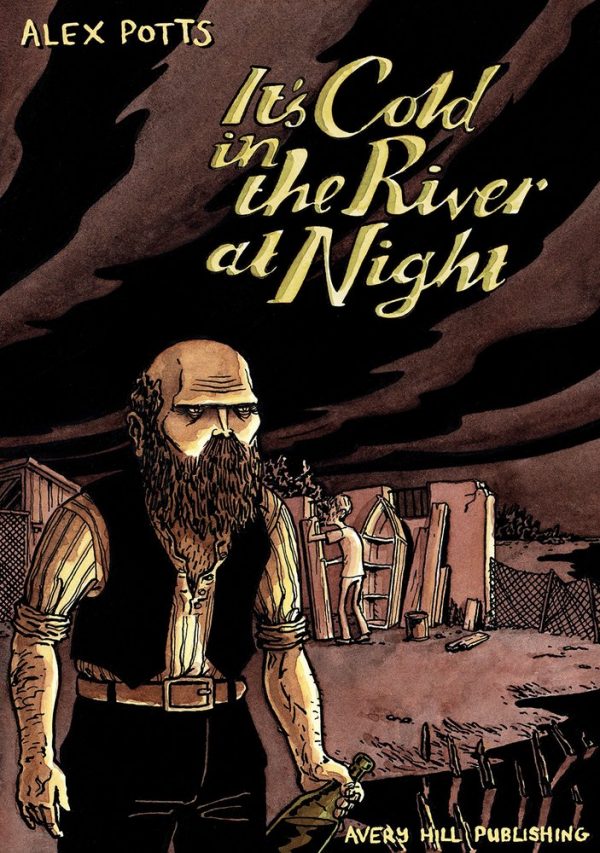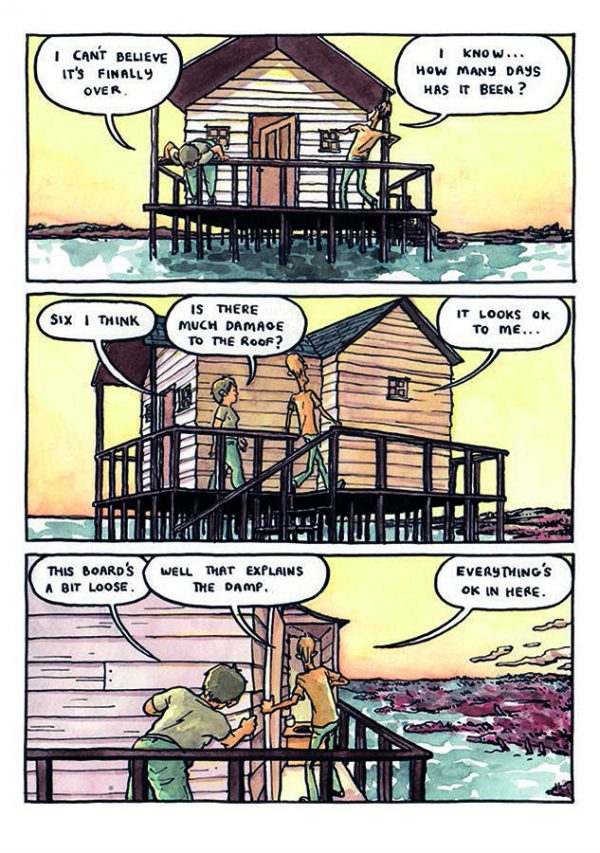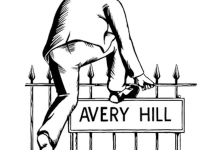Strangers in an unnamed European rural area, Carl and Rita have moved into a house on stilts in the water, the last of its kind where storms brew and the house’s fortitude during those storms is an uncertainty. It’s Cold In The River At Night presents this setting as foreboding panorama as the setting for a mysterious domestic drama, but also as a signpost to the past, present, and future of Carl and Rita’s relationship, in a place where few helpful signs seem to exist.
The house is originally presented as an unusual blight of interest for a sightseeing boat that proclaims the house abandoned, but we are shown Carl and Rita in residence, apparently happy. They’d just gotten through a violent storm that lasted a couple days and have crept out of the house to enjoy some sunlight.
Rita is working on her dissertation, while Carl is feeling useless and looking for purpose. He finds it in a book on local history that sends him on an investigation into stories about coffins being crafted like boats. Carl wants to find out more about them and it sets him off into the local community to do so.
Rita isn’t exactly supportive, however, and her subtle questioning of Karl’s interest in the subject begins to heighten his paranoia. And once he finds what he is looking for, not only is their relationship put more in jeopardy, but the object of his quest turns into a mysterious and arduous psychological journey that he might not be prepared for.
Alex Potts hits all the right notes in this brief, but full, graphic novel. In portraying strangers in a foreign land, he’s able to capably portray the alienation in the situation, both in regard to the visited place and the psychological strands between the two people, linking them together very well. An unfamiliar place shares a lot with a relationship in that they both require exploration in order to find true comfort, and Potts presents two people who can’t bring the lessons of their own external curiosity to the emotion between them.
Places and relationships can not only offer the chance for obscure knowledge to be realized, but they can also hint at hostilities that might merely be caution. How you are able to navigate either depends on your ability to read the difference.









